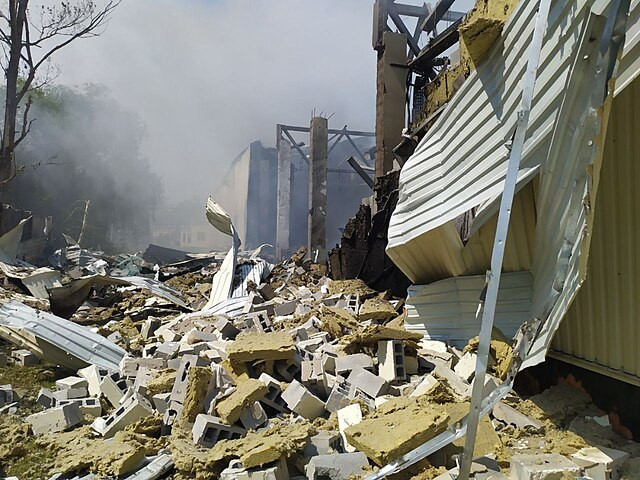In what Ukrainian officials have described as one of the most intense assaults since the onset of the war, Russia launched a massive aerial attack across Ukraine, targeting critical infrastructure and causing widespread devastation. The assault, which began overnight and extended into Monday morning, involved over 100 missiles and nearly as many drones, leaving a trail of destruction in its wake.
Ukrainian President Volodymyr Zelensky condemned the attack as "vile," noting that it marked one of the largest offensives in more than two and a half years of conflict. The strikes were aimed primarily at Ukraine's energy infrastructure, a frequent target of Russian forces seeking to disrupt the country's power supply and plunge its citizens into darkness. "Russian terrorists have once again targeted energy infrastructure," Ukrainian Prime Minister Denys Shmyhal stated on Telegram, confirming that at least 15 regions were hit by a combination of drones, cruise missiles, and hypersonic Kinzhal missiles.
The extent of the damage was severe, with power outages reported in several major cities, including Kyiv and Dnipro. Ukraine's national energy company, Ukrenergo, implemented emergency power cuts to stabilize the grid. "The energy sector is in the crosshairs," said Ukraine's Energy Minister Herman Halushchenko, as officials began assessing the full extent of the damage.
The assault came just days after Ukraine's incursion into the Russian border region of Kursk, marking the first foreign invasion of Russia since World War II. In response, Russia escalated its attacks, with Ukrainian authorities anticipating such a retaliatory strike for weeks. The U.S. Embassy in Kyiv had warned of increased risks of Russian drone and missile attacks ahead of Ukraine's Independence Day.
The overnight barrage targeted regions across the country, from the eastern frontline areas of Kharkiv and Dnipro to the southern port city of Odesa, and even the capital, Kyiv. Ukrainian air defenses were activated across nearly all regions, and while many missiles and drones were intercepted, some still managed to hit their targets. "The bulk of the missiles were shot down in the region, but even from there, I could hear the sounds of explosions," said Anna, a Kyiv resident who woke up to air-raid alarms.
The attacks left at least four people dead, with fatalities reported in the Dnipropetrovsk, Zaporizhzhia, Volyn, and Zhytomyr regions. In addition, five people were injured in the central Poltava region when an industrial facility was struck. The scale and intensity of the attack have once again raised concerns about Russia's ongoing strategy of targeting civilian infrastructure to weaken Ukrainian morale and cripple its energy supply.
The widespread power outages have left many residents struggling without electricity or water. "There is nowhere to go and to hide," said Katerina, a resident of Kyiv's outskirts. "The explosions were so powerful that the house was shaking." Like many others, she and her family sought shelter as the attacks continued throughout the night.
Meanwhile, Russia reported its own defensive actions, claiming that its air defenses had intercepted 20 Ukrainian drones overnight, including nine over the Saratov region. This comes as Ukrainian forces continue to advance in the Kursk region, with President Zelensky announcing that his troops had gained control of two more settlements.
In the wake of the assault, Ukrainian officials renewed their calls for increased military support from Western allies. Zelensky emphasized the need for long-range capabilities to strike deeper into Russian territory, arguing that Ukraine should not be constrained while Russia faces no such limitations. "Ukraine cannot be constrained in its long-range capabilities when the terrorists face no such limitations," he stated.




